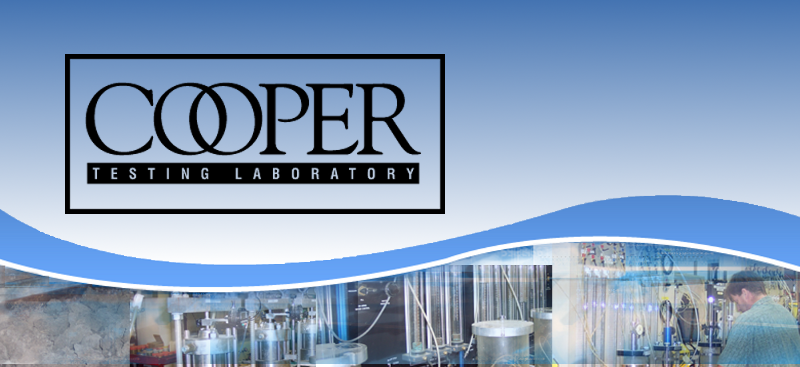Quality Control
Quality control is of the utmost importance at Cooper Testing Labs. The laboratory managers continually monitor testing activities in the lab in order to assure that testing is proceeding in accordance with the appropriate standards. Any discrepancies are reviewed and the test is rerun if appropriate. A laboratory manager reviews all test results before they are released to the client. If test result accuracy is suspect, the entire test is reviewed and rerun if appropriate.
The staff at Cooper Testing Labs has over 75 combined years of experience in the lab and in the field doing geotechnical testing. All testing is performed by, or under the direct supervision of, an experienced geotechnical laboratory technician.
It is the policy of Cooper Testing Labs to participate in testing audit activity, i.e., Caltrans Reference Sample Program, AASHTO re:source’s Proficiency Sample Program etc. Programs such as these allow us to see how our results compare with those from labs around the state and around the country. We are accredited through the AASHTO Accreditation Program, and validated by the USACE.
Samples are logged in on arrival. At that time they are assigned a job number and start date and are cross checked with the request sheet or chain of custody to make sure all the samples are accounted for. They are then inspected for proper containment; i.e., sample bags are sealed and have no holes; shelby tube end-caps are taped to prevent moisture loss. If there is a chance of significant moisture loss prior to testing, samples will be stored in a wet room that is kept at over 90% relative humidity. After testing is complete the samples are logged into the sample storage room and assigned a shelf number and date. The samples are stored for a minimum of 30 days after the report goes out. After 30 days the samples are returned to the sender for proper disposal if they are contaminated, or discarded if they are not contaminated.
Separate files are maintained by client and project. All original worksheets, purchase orders, test requests and/or chain of custody documentation are kept in the client/project file for a period of 7 years. Additional copies of any test results can be provided upon request.
It is the policy at Cooper Testing Labs to maintain redundant testing systems wherever possible. This redundancy is designed to minimize the impacts on testing of events such as power outages or equipment failure. It also allows us to run comparison testing as a check of the proper functioning of our equipment. For example, the majority of the equipment in the lab is run on compressed air. Many of the tests such as permeability and consolidation are long duration tests taking up to two weeks to complete. If the compressed air system goes down, many tests can be ruined. We have set up our system with a backup compressor on line, set to come on when the pressure drops below a predesignated pressure level. In the event there is a power outage, there is a compressed nitrogen backup system set to come on at a predesignated pressure level.
Equipment maintenance and calibration are an integral part of the testing process at Cooper Testing Labs. All applicable equipment (scales, load cells LVDTs, etc.) is calibrated at least once every year by a senior Cooper Testing Labs technician. An independent calibration company with equipment traceable to NBS standards calibrates our calibration equipment annually. Each piece of equipment is inspected when it is used for testing. All testing equipment and instrumentation at Cooper Testing Labs are regularly checked for signs of damage, wear, or being out of calibration. Part of the job at Cooper Testing Labs is to check the instrument each time it is used. If the equipment is found to need service it is tagged out of service and reported to the laboratory manager. The laboratory manager will assure the prompt repair of the equipment. It is then re-calibrated before being put back in service. All equipment manuals, schematics and calibration reports are maintained in the laboratory manager’s files.
